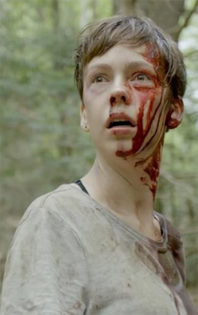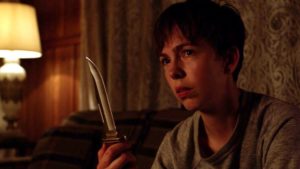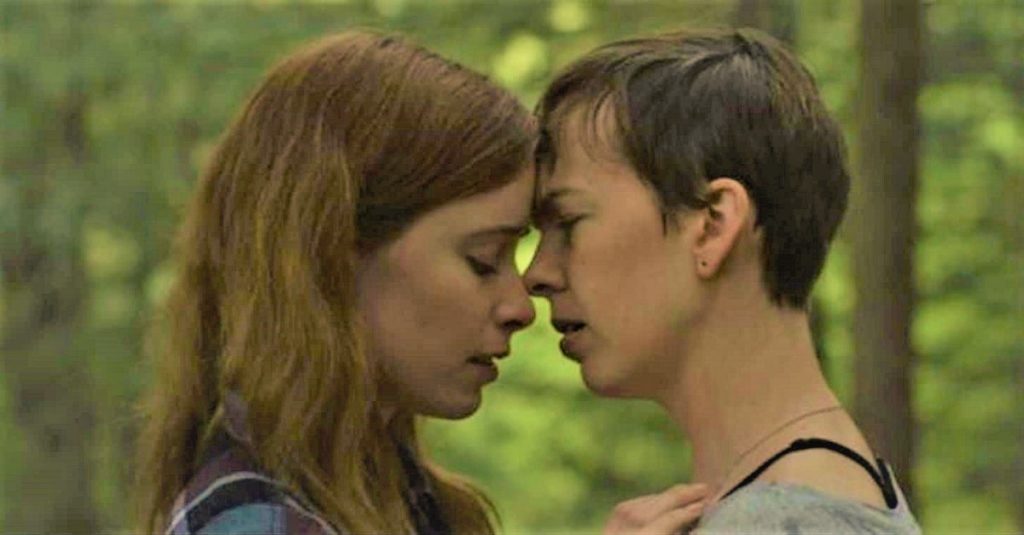
The woods are turning Jackie (Hannah Emily Anderson) into a different person or it’s showing an unseen side of her. Her wife Jules (Brittany Allen) is noticing these slight changes when they go on vacation in Jackie’s childhood cabin. Jackie disappears for hours, going to town to pick up some things, she says. Jules thinks there’s more to it than that. She literally rows over to Jackie’s friend Sarah (Martha MacIsaac) to see what’s really going on. That rowing scene is intense, showing a strength she’ll need when Sarah hints at a truth about Jackie. And it’s much worse than whatever infidelity she must have been drumming up in her head. Much worse.
What Keeps You Alive is about Jackie’s ‘responsibility’ for a childhood friend’s death. And about the very real responsibility she has in throwing Jules off a cliff, which the latter miraculously survives. What ensues is a cat and mouse game as well as a window into Jackie’s psychopathy. In her insistence on killing her wife in a certain way. It also shows a version of subverting gender norms. Jackie, who is more feminine, changes her voice and identity and shows more outward strength that surprises Jules. The latter, who is the ‘butch’ one in the relationship becomes the film’s scream queen. Both perform these switches well but the blood highlights that message too.
What Keeps You Alive also shows the complex polarity of people’s actions while they’re in a relationship. The end goal, of course, involves Jules’ survival or demise, Jackie working on the latter. However, there are moments when both care for each other despite the big revelation. It’s more baffling when Jackie does it, showing ‘love’ by bathing her. There’s something lacking in the execution though, no pun intended, and it feels like Hamlet-like levels of procrastination. Jackie can literally kill Jules during the halfway point if not earlier than that. But it’s under the impression that it has to stretch that tension out for ninety minutes. This should have been a short film.
There are men who have good intentions in telling stories about queer women, Minihan probably being one of them. And there seems to be a collaborative air here with Anderson also contributing music to the film. However, this gender dynamic in front of and behind the camera is still murky. He has hints of presenting this story with cool visuals. A long take during the beginning. Another scene taking place under ultraviolet light to show blood splatter. That one’s set to Beethoven pieces we’ve all heard a decade ago. The intention here might be to take 70’s trash cinema to the post CSI 21st century. But all of this adds up to heavy handed direction.
It’s unjust to compare this to previous thrillers, especially ones that defy the genre’s rules. This film was almost going to do that. They go from the woods to the lake where they chase each other by boat. And it would have been nicer for them to go to a third or fourth location. However, Jules does something that audiences already mock – returning to the scenes of the crime. The film explains this tendency away, that it is somehow in her normal nature to do so. And surely the audience would have had less chances of survival under threat. But characters like Jules still have to be smarter than they are.
- Release Date: 8/24/2018


